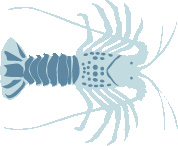Overview
The actors, involved in the spiny lobster fishery in southern Quintana Roo, worked to improve and maintain responsible fishing practices in the pursuit of sustainability. In 2012, the spiny lobster fishery became MSC-certified. However, due to the lack of resources needed to maintain it, the fishery lost certification in 2016. A FIP was launched after this process, but the COVID-19 pandemic and other economic factors impacted the process, that was halted at the end of 2021.
Though the certification was lost, interest in continuing to work towards the sustainability of the fishery was still strong. It was decided to restart the project in 2024. This would make it possible to improve the vulnerable areas of the fishery, and to maintain what had been achieved previously. This FIP’s scheme would also let the actors show the work that has been done with the intention of increasing the possibilities to access into new and preferential markets, in addition to becoming a model of sustainability for other artisanal fisheries.
The project focus on the work of the cooperative that harvest the species diving via hand held or with the use of casitas (artificial reefs). The cooperative is a consolidated group that has a concession in the region to exclusively access the species, which is an important part of their income. No major social risks are expected, with potential formalization of internal processes, such as the grievance mechanism or having a policy in place regarding members rights.
The actors, involved in the spiny lobster fishery in southern Quintana Roo, worked to improve and maintain responsible fishing practices in the pursuit of sustainability. In 2012, the spiny lobster fishery became MSC-certified.
El objetivo principal de este FIP es transformar el manejo de la pesquería artesanal de langosta espinosa en Quintana Roo, México a través de la implementación de estándares internacionales de pesca sustentable con un enfoque participativo para el año 2029.
The specific objectives the FIP hopes to achieve are as follows:
1. Maintain the continuous generation of information on the state of the lobster population (March 2026*)
2. Generate scientific information on the effect of the fishery on the ecosystem and document this information (March 2026*)
3. Promote the robustness of the management, by including more fishery specific objectives and harvest control rules (December 2029)
* The data collection is an annual process, that will be repeated every year.
FIP at a Glance
| 14% | 86% |
This pie chart represents completed environmental actions. Non-completed environmental actions may contain completed sub-tasks that are not illustrated here. For more information on environmental action progress visit the Actions Progress tab.
- Complete
- Incomplete

